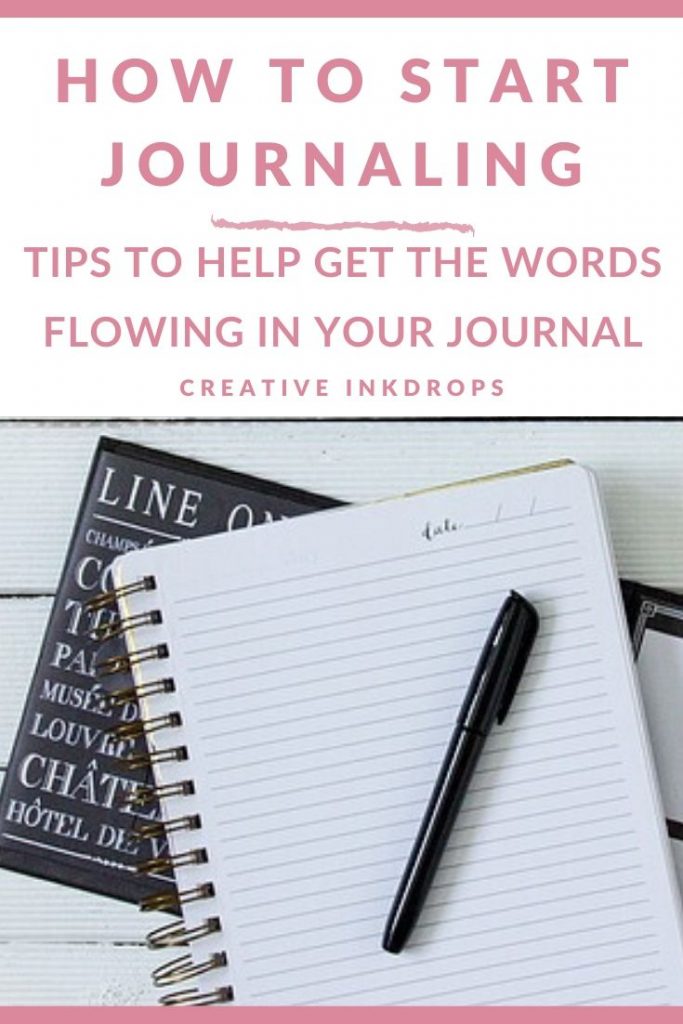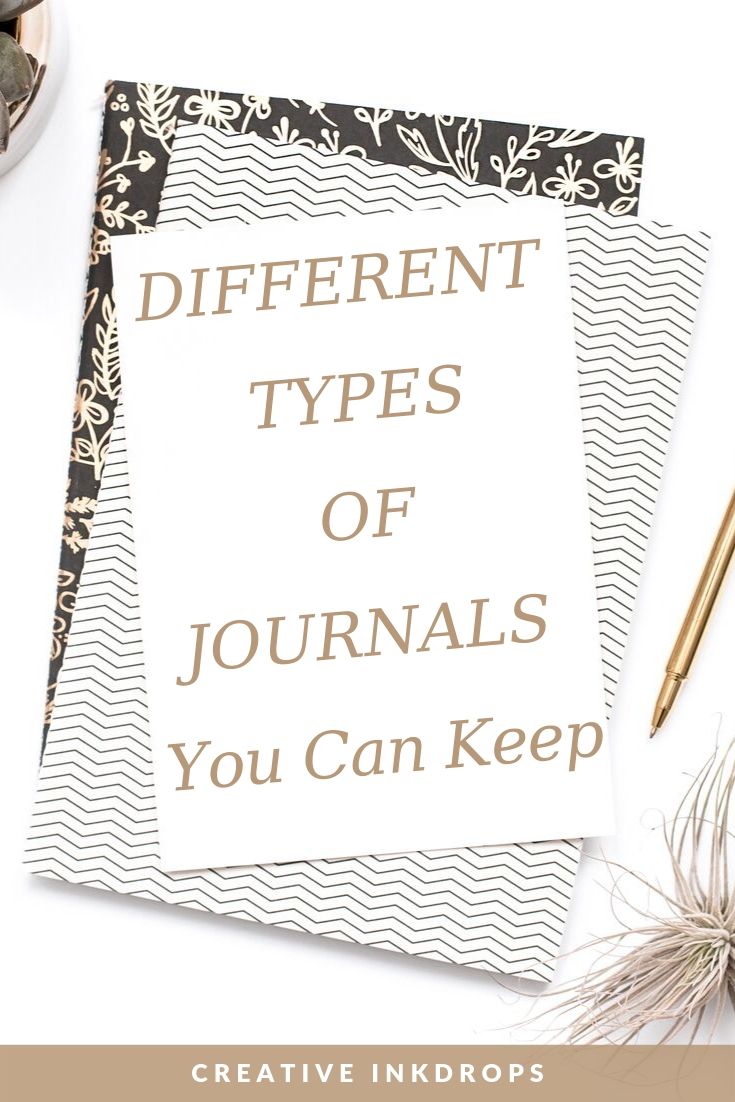How To Start Journaling
 Journaling is a popular topic right now due to how easy it is to do, how many options there are, and because of the long list of benefits.
Journaling is a popular topic right now due to how easy it is to do, how many options there are, and because of the long list of benefits.
Writing in a journal, whether you do it daily or whenever you get the time, can be a therapeutic experience. It is wonderful for your mental and emotional health, but it also has benefits for your physical health and wellness as well.
While journaling seems like a very simple practice, some people find it difficult to keep up with. It is not uncommon to be all ready to go, journal for a few days, then lose interest or find it isn’t helping you as much as it should. This is not often because of the fact that you aren’t meant to write in a journal, but you might be going about it the wrong way.
What you may need is a little inspiration and motivation, and just a few tips to help you be more successful at it. This will allow you to use journaling to its full advantage and improve your life.
So, if you have been wanting to journal or have made a few attempts, but have yet to see the benefits of it, this is for you!
1. Create a Journaling Sanctuary
This should be the very first step to your journaling experience, aside from buying the journal and writing utensils. For journaling to become an everyday thing that benefits you to the fullest, you need to have a good place to write. This is often where many people go wrong. While you can definitely bring your journal with you and write when it is convenient, it also helps to turn journaling into a daily habit. That is where the journaling sanctuary comes in.
It doesn’t have to be fancy or cost you money to put together. The most important part is that it is a dedicated area in your home (or office) where you feel like you have at least a few minutes to write without distractions. You will know the best place and time for this sanctuary. Perhaps you have a little reading nook in your bedroom where you can write when your significant other has gone to work, or you choose a quiet sofa in the living room that has a nice lamp next to it.
Set it up to where you are ready to write once you sit down. Have a comfortable spot to sit, a table if you want to do it that way and all your journaling supplies. Try to turn off your phone and TV when you are writing, so that you can set the mood properly. If you do this, you will soon look forward to writing in your journal every day instead of feeling like it is a chore for you.
Tips for Setting Up the Perfect Journaling Sanctuary
Find a spot in your home where you will have quiet time for writing. Think about where in your home you can choose for the sanctuary. This isn’t just where it is most comfortable, but an area where you can get privacy when you need it. The dining room table might be great for writing, but if there are often family members going in and out of that area, it isn’t ideal.
Have adequate light so you can journal any time of the day. Keep in mind that when you have a journaling sanctuary, you are writing when you are alone and have some quiet time. This may be late at night or early in the morning when the sun isn’t there to provide natural light.
Choose a spot where it is easy to turn on a lamp and get the lighting you need.
Find a table or desk to make it easier to write. While many people will sit on the couch or bed with a journal in their lap, this isn’t always the most productive way. You should be comfortable, but sometimes it helps to be able to spread out. This is especially true if you are using various writing materials and art supplies for a more creative form of writing.
Add some ambiance to make it even more enjoyable. Lastly, don’t be afraid to truly turn it into a sanctuary with some ambiance. Put out some candles, light incense, or have a few decorative elements that provide inspiration for your writing.
2. Try Stream of Consciousness Writing
When you have your journaling sanctuary set up, it is time to start writing. One essential tip for journaling and keeping up with the practice is to try stream of consciousness writing. This is when you just start writing about anything and everything. You are not using a journaling prompt or trying to write about a specific thing. You just write the first thing that comes to your mind and keep going.
For this form of writing, it can help to set a timer, but not one you are looking at the entire time. Instead of using a timer on a computer where you are attempted to keep glancing up at it, try setting one on your phone and turn it face-down. That way, you aren’t focused about how much time you have left, but just keep writing.
Benefits of Stream of Consciousness Journaling
Why should you try this form of journaling? Here are a few benefits of using this method:
You are not overthinking everything you want to say
It allows you to discover thoughts and feelings you didn’t know were brewing
You can work out issues without worrying about spelling or sentence structure
The lack of rules makes journaling a more enjoyable experience
It is a style of writing anyone can do
Get out your journal, set a timer for a few minutes (start with 5-10 minutes) and see what happens when you just write with no rules and no prompts.
3. Don’t Censor Yourself
As you begin journaling on a regular basis, you will discover the tendency to cover up certain truths. While the journal should only be kept for you and you alone, it can be hard to get into the practice of being completely open and honest with yourself. This is completely normal and part of the learning experience of journaling, but it is also important to try and break this habit.
You might be used to creating this appearance of being a put together, healthy, well-functioning human that ignores things causing stress or emotional turmoil in your life. However, writing in your journal should be a personal and almost intimate experience. This is just for you and you alone. To benefit fully, just like when you talk to your therapist, you need to be honest with yourself. If you find that you are covering certain things up or making excuses, take a step back and analyze what you are writing about.
Don’t worry about having to censor yourself, whether it is in regards to what you are writing or how you are writing. Don’t know how to spell something? So what! Have a long run-on sentence? Oh well. This isn’t an essay you are turning into your teacher. It’s a journal that only you are going to read.
Tips for Writing in an Honest, Open Way
Here are some helpful tips that will allow you to be honest with yourself while journaling:
Keep the journal private and secure, in a place where nobody would be able to snoop through it.
Ignore all rules of writing – don’t worry about spelling, grammar, sentence structure, or any other writing rules.
Ask yourself if you are being honest, as a type of silent prompt to be open with yourself while journaling.
4. Work Out Your Negative Feelings
As you begin advancing in your journal writing journey, you will discover that you want to express more of your inner thoughts and feelings. This is great! It allows you to be honest with yourself and really work through some challenging things. That is the beauty of journaling or writing in general. When your mind is full of all these thoughts, it becomes overwhelming and you can’t quite make sense of them. If you start writing down those thoughts and feelings, it can help you to get to the core of what’s going on.
When you are writing in your journal, whether doing stream of consciousness writing or choosing a specific topic, try to think of anything that is bothering you. Perhaps it is the holiday season and you are stressed about finances or having enough time to get everything done, or you have found that you are becoming overwhelmed at work.
Make a list of all those situations that are causing negative emotions and see if you can find the core of what is happening. Even if there isn’t some magical solution to fix the problems, it helps to vent out your frustrations. What often happens is that you figure out what is bothering is completely different from what you originally thought. This is not only therapeutic, but very enlightening, and can help your mental health in the future.
5. Embrace Both Strengths and Weaknesses
By now, you have a better understanding of how to prepare for a journal, what to write, and some good tips for writing with reckless abandon. Now, let’s discuss a few more details of what you can write about. In the last section, you learned about why you should really go through any negative thoughts or feelings you have in order to sort through them, vent your frustrations, and see if you can figure some things out. This is only the first step of the healing process for your emotional and mental health.
The next thing you need to do is write down the positive aspects. It is good to have both because you don’t just want to complain about what is wrong in your life, but focus on the good things as well. Balance is what life is all about, so your journal should be well-balanced as well.
We are talking about truly embracing both your strengths and your weaknesses, the good and the bad, things you are grateful for and things you wish you could change. Here are a few prompts that can help you do this properly:
1. What is your biggest strength?
2. What do you think your biggest weakness is?
3. What area of your life do you want to improve?
4. What are you most grateful for?
5. List 10 things you appreciate in your life right now.
6. Name 5 things you can do to change your current situation.
7. List 7 people in your life that bring joy and purpose.
8. Name something bothering you and one action to take today that can change it.
9. Why do you think you are struggling?
10. Why do you feel successful?
By using these types of prompts, you are discovering good and bad things in your life. The bad aren’t necessarily bad, but just challenges you are facing. Nothing is past the point of improvement, so sometimes you just need a little help figuring out what to write about and following through.
6. Indulge in Your Dreams
Finally, take time in your journal to indulge in your dreams. Even if you are a Type A personality that thinks about things in a logical way, you probably have some dreams, both big and small. Don’t diminish them as fantasy and assume you can’t make some of them a reality. It is amazing when you can truly write down your biggest desires and see what comes of it.
Why You Should Indulge in Your Dreams
There are many types of dreams people have. Some are big, some are some. Some are elaborate, while others are just brief thoughts. Some dreams are impossible, but others are manageable with the right steps. The reason you should indulge in your dreams is that it can help you channel your creativity, boost your imagination, and give you a sense of wonder and excitement.
Let yourself experience what it might be like to indulge in these dreams, whether that means traveling to an exotic country on the other side of the world, starting your own business, or creating a fantasy that only a very vivid imagination could concoct. Journal your dream, being as detailed as possible.
What do you get from this?
You learn how to be more creative and imaginative, but oftentimes, you figure out ways to make certain dreams a reality. Some might allow you to discover the things you truly want in life, the things that would make you happy.





